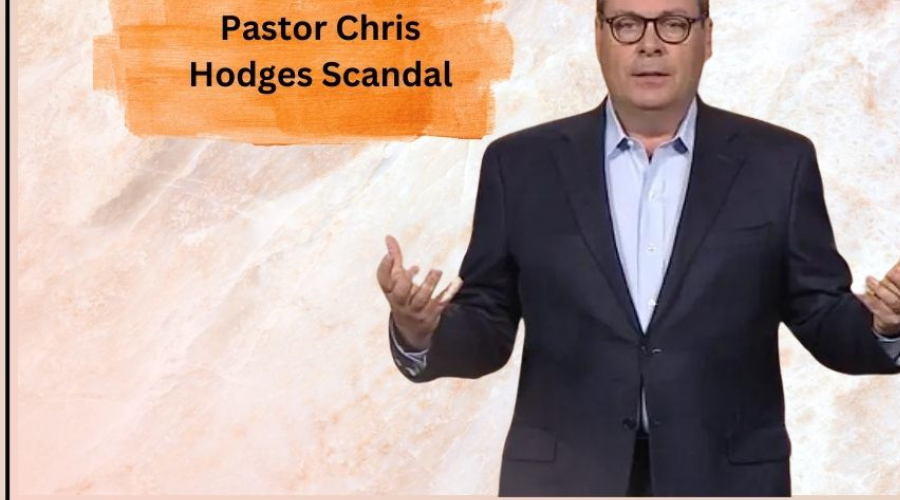Introduction
Pastor Chris Hodges, the founding pastor of the megachurch Church of the Highlands in Birmingham, Alabama, has seen his ministry flourish under his leadership, growing to accommodate over 50,000 weekly attendees across multiple campuses. However, in 2022, the church and Hodges faced a significant challenge when allegations of misconduct surfaced, leading to a major scandal. This article delves into the events surrounding the “Pastor Chris Hodges scandal,” examining its impact on the church, the broader evangelical community, and the lessons that can be learned.
The Initial Allegations
The scandal first came to public attention when Jasmine Faith Clisby, a Birmingham high school English teacher, highlighted Pastor Chris Hodges’ social media interactions. Clisby, who holds multiple degrees in education, noted that Hodges had repeatedly liked posts by Charlie Kirk. According to Clisby, these posts often contained content that she found culturally insensitive. Clisby clarified that her intention was not to label Hodges as a racist but to draw attention to his endorsement of controversial viewpoints. Her observations quickly sparked a broader discussion about the appropriateness of Hodges’ social media behavior.
The Nature of the Controversial Posts
Several specific posts that Hodges liked were particularly troubling to Clisby and others. One post shared by Kirk featured a meme with Donald Trump alongside Muhammad Ali and Rosa Parks, implying that Trump, often accused of racism, was no different from Democratic Virginia Gov. Ralph Northam, who was depicted in blackface and KKK costume in a yearbook photo. Another post liked by Hodges included a quote from Michelle Obama urging people to stay home during the pandemic, juxtaposed with a photo of Barack Obama playing golf. Additionally, Hodges liked a post where Kirk referred to COVID-19 as the “China Virus,” a term widely criticized for its racist connotations.
These social media interactions suggested to some that Hodges supported views that many found divisive and insensitive, particularly in the context of ongoing national discussions about race and equality.
Hodges’ Response and Sermon
Facing mounting backlash, Pastor Chris Hodges addressed the issue directly in an online sermon. He unequivocally denounced white supremacy and clarified his stance on racism, acknowledging that some of his social media actions could be seen as questionable. Hodges took full responsibility for his actions, emphasizing that the posts he liked did not reflect his true beliefs and that he understood the hurt they caused.
In his sermon, Hodges stressed the importance of unity and the church’s mission to fight against all forms of supremacy other than that of Christ. He recognized that his actions had led some to question his character and the values of the Church of the Highlands. By addressing these concerns publicly, Hodges aimed to reassure his congregation of his commitment to inclusivity and justice.
Apology and Steps Forward
On June 2, Pastor Chris Hodges issued a heartfelt apology, expressing deep regret for his social media activity and the pain it caused. He admitted that his actions were thoughtless and did not align with his values or the teachings of Christ. Hodges pledged to learn from this experience and committed to engaging in more conversations about racial disparities to better understand and address them.
Hodges announced plans to hold forums at the Church of the Highlands, allowing members of all races to share their experiences and perspectives. This initiative was part of his broader effort to foster a more inclusive and understanding church community. By creating a space for open dialogue, Hodges hoped to promote healing and reconciliation within his congregation.
Impact on Church of the Highlands
The scandal had a profound impact on the Church of the Highlands, a congregation with a predominantly white membership but significant black representation. Despite the controversy, the church continued to hold online services and considered resuming in-person worship. Pastor Hodges’ apology and efforts to address the issue were crucial to the church’s response, demonstrating a commitment to transparency and accountability.
The Church of the Highlands faced a period of introspection and reevaluation as it navigated the fallout from the scandal. The leadership recognized the need to address the concerns of their diverse congregation and to ensure that the church remained a welcoming and supportive environment for all members.
Moving Towards Reconciliation
In the wake of the scandal, Pastor Chris Hodges acknowledged the necessity for change and expressed his commitment to fighting for justice and equality. He recognized the importance of listening to different perspectives and learning from them, emphasizing that true leadership involves humility and a willingness to grow.
Hodges’ approach to handling the scandal highlighted his dedication to leading by example and fostering a more inclusive and understanding community. By taking responsibility for his actions and actively working to address the issues raised, Hodges demonstrated a commitment to rebuilding trust and unity within his church.
Conclusion
The “Pastor Chris Hodges scandal” has shed light on the complexities of social media interactions and their impact on public figures. While the initial actions caused hurt and controversy, Hodges’ response and subsequent efforts to address the issue demonstrate a commitment to growth and reconciliation. As the Church of the Highlands navigates this challenging period, the focus remains on unity, understanding, and healing.
This controversy serves as a reminder of the importance of accountability and transparency for church leaders. By prioritizing these values, Pastor Chris Hodges and the Church of the Highlands hope to emerge stronger and more committed to their mission of inclusivity and justice. Through open dialogue and a willingness to learn, the church aims to rebuild its community and continue its work in promoting equality and understanding.
